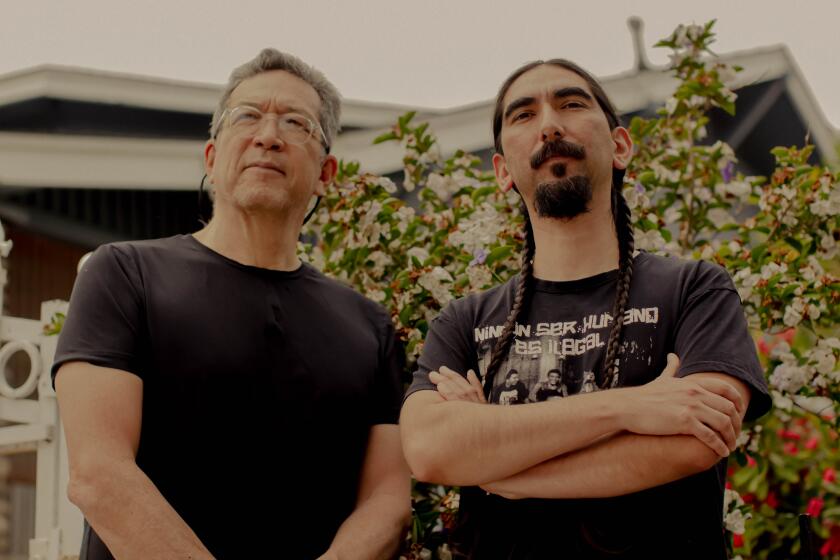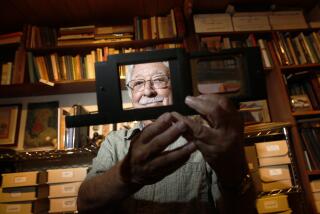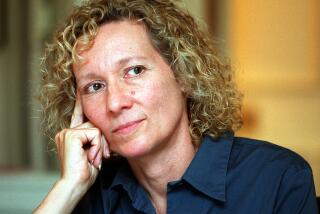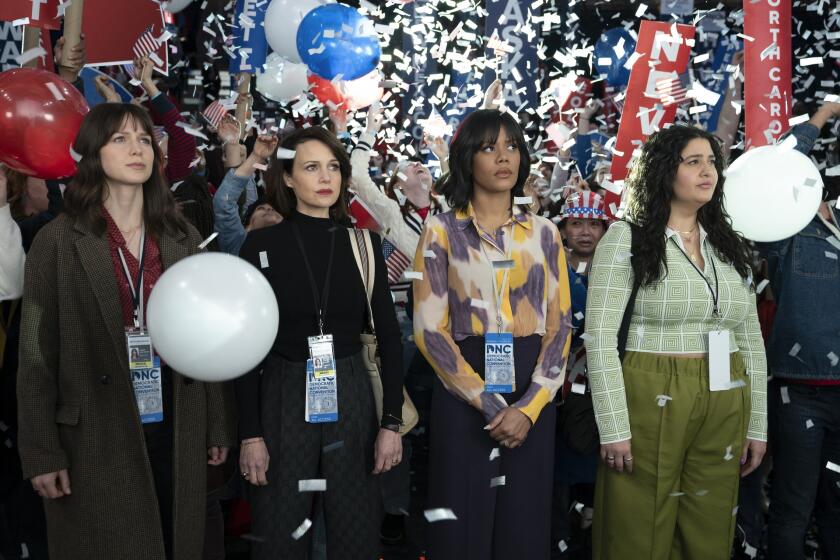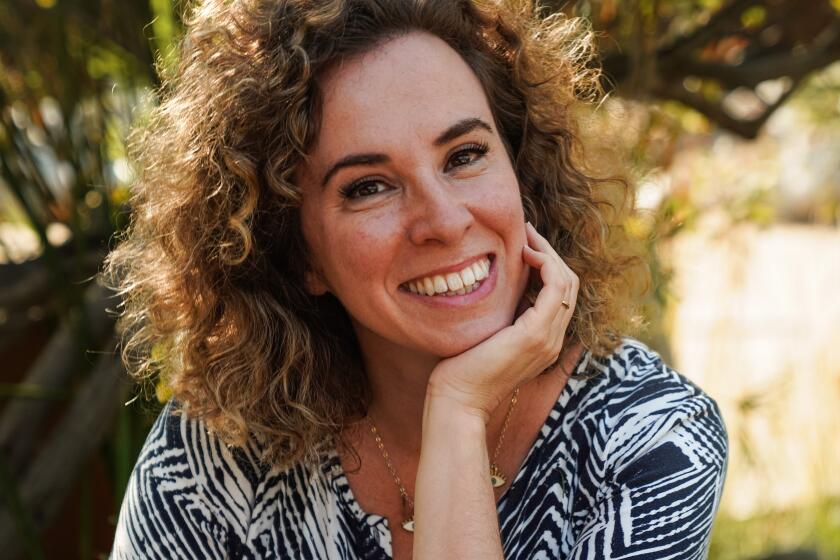Appreciation: Pioneering L.A. poet Amy Uyematsu showed that words could move mountains
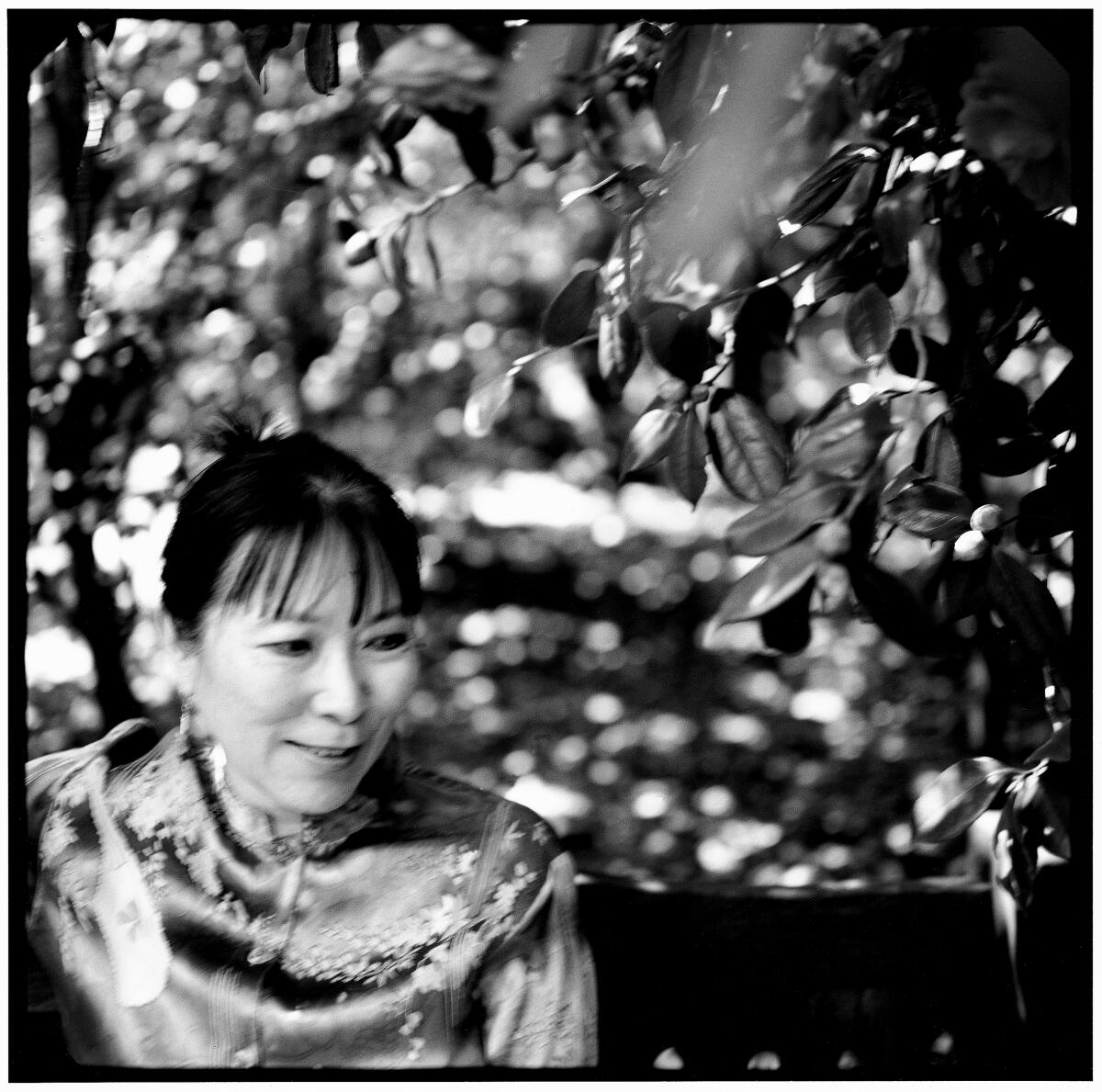
Poet Amy Uyematsu was a friend and colleague of mine for 30 years. Her sixth and last book, “That Blue Trickster Time,” was originally scheduled to be published in the fall of 2022, but was pushed up to March of that year. “When I learned I had Stage 4 cancer in May 2021, I asked the publisher if they could move up the production date,” she told me. “They were kind enough to do that. The title came from a phrase in the closing poem of the book — ‘that blue trickster time’ — and sadly, this title would take on far heavier meaning than I ever expected.”
Uyematsu died last Friday at 75, after a two-year struggle with breast cancer, in Culver City, according to her husband, Raul C. Contreras. She is also survived by her son, Chris Tachiki, and her mother, Elsie Uyematsu Osajima.
Recently I had been trying, along with poet and Cal State Los Angeles professor Michael Willard, to arrange an extended interview with Amy about her work and her trajectory as a poet, but Michael and I ran out of time. Fortunately, Amy had been interviewed elsewhere, and some of these conversations are available online. Los Angeles has lost a major poet, one whose verse articulated the experience of Asian Americans long denied presence or representation.
Lee McCarthy traces the enduring spirit of poet Amy Uyematsu’s Japanese grandfather, whose generosity and tenacity helped make Descanso Gardens bloom
I had already been thinking about the power of poetry in the life of this city. Last month, Willard and I interviewed Amy’s colleague, Russell Leong, at his Los Feliz home. He told us about the genesis of one of his poems. During the 1992 riots/rebellion, when UCLA canceled classes and closed shop, Russell left his job as an editor there and headed for home. Driving Santa Monica Boulevard, he saw women clustered at every bus stop: the housekeepers, cooks and caretakers of Beverly Hills waiting to take the buses east to the other side of the city. But the buses had stopped running. Russell packed as many of the women as he could fit in his car and drove them homeward.
I remembered that April 30 well myself — gazing out the window of my mom’s house in East L.A., watching columns of black smoke rise over a paralyzed city. My poems about those days were published alongside Russell’s in a special issue of High Performance magazine. These facts of life you won’t find in the machismo of movies or in the headlines of news media; if there are “more things in heaven and earth than are dreamt of in your philosophy,” they are to be found in poetry. As William Carlos Williams famously put it, “It is difficult / to get the news from poems / yet men die miserably every day / for lack / of what is found there.”
In 1989, Michelle T. Clinton, Naomi Quiñonez and I edited an anthology, “Invocation L.A.: Urban Multicultural Poetry,” the first of its kind about Los Angeles, which collected poems by writers ranging from machinist-poet Fred Voss to the late Akilah Nayo Oliver and Wanda Coleman, from organizer-poet Deena Metzger to Harry Gamboa Jr. of the famed Asco art group — as well as Russell Leong and Amy Uyematsu.
When I published my second and third books, I invited Amy to read with me at both publication parties. She’d been doing important work for years, publishing in the Asian American movement magazine Gidra and co-editing “Roots: An Asian American Reader” (UCLA, 1971) while I was still in high school. Amy once remarked to me about her own work, “I know it’s more old-fashioned or something, not as experimental or avant-garde as your work.” I told her she was one of the major poets in the city. She was like an aunt or older sister, and I invited her to read at my book release readings because I was just some kid compared to her, with a lot to learn.
Sesshu Foster emerged from a difficult L.A. childhood to become a leading poet. He couldn’t have done it without Wanda Coleman — or Charles Bukowski.
Amy had been around for the beginnings of the student-led Asian American movement at UCLA, and she stayed politically active as she got married and had a son, taking part in the activities of the Pacific Asian American Women Writers West in the 1980s and the collective known as Cantaluz in the ’90s. I didn’t know the details, but I knew her life wasn’t easy: divorcing and raising a son as a single mom; embracing Buddhism and finding a time and place for her role as a poet. Amy taught mathematics in the Los Angeles Unified School District for more than 30 years.
Eventually, I too taught English composition and literature in LAUSD for 34 years, so I knew that life as a poet was a struggle. Working full time and raising a family and writing and publishing books? “That’s like icing on the cake,” Amy said. Maybe she did use the old-time phrases like “icing on the cake” and “Yellow Power,” but she’d stepped up in the ’60s and she was a veteran, as far as I was concerned. I had nothing but respect.
Nor did Amy rest on the work she’d done decades earlier. In 2005, she published a book of Zen-inflected poems, “Stone Bow Prayer,” with Copper Canyon Press, one of the main poetry publishers in the United States. “The Yellow Door” followed in 2015, “Basic Vocabulary” a year later. And finally, “That Blue Trickster Time,” one of my favorites, which I gave away to friends — especially those avid readers who didn’t read much poetry.
The activists undoing the racist gentrification of East L.A.
The life of a city as manifold and colonized as L.A. is often hidden by garish surfaces, and sometimes the most portentous meanings are located — to use Ralph Ellison’s term from “Invisible Man” — “on the lower frequencies,” those which our poets attend. I recall this poem, in which Amy drew a parallel between the city of 1992 and the L.A. of 1871:
LA Riots, Circa 1871
Invisible history for these
all too visible Chinese
17 to 20 immigrants hung
in 3 downtown locations
Wong Chin ran a store
Ah Long made cigars
Several cooks, including
Tong Won, also a musician
One victim discovered
without his trousers
and his finger missing
for its diamond ring
The mob of five hundred
includes women and children
of the ten who stood trial
not one sent to jail
A mass lynching forgotten
too minor to mention
in end-of-year recaps
no sign of these brutal facts
By 1876 the front page of the Herald
features the Anti-Coolie Club charter
a Who’s Who of prominent citizens
membership a mere fifty cents
More to Read
Sign up for our Book Club newsletter
Get the latest news, events and more from the Los Angeles Times Book Club, and help us get L.A. reading and talking.
You may occasionally receive promotional content from the Los Angeles Times.

